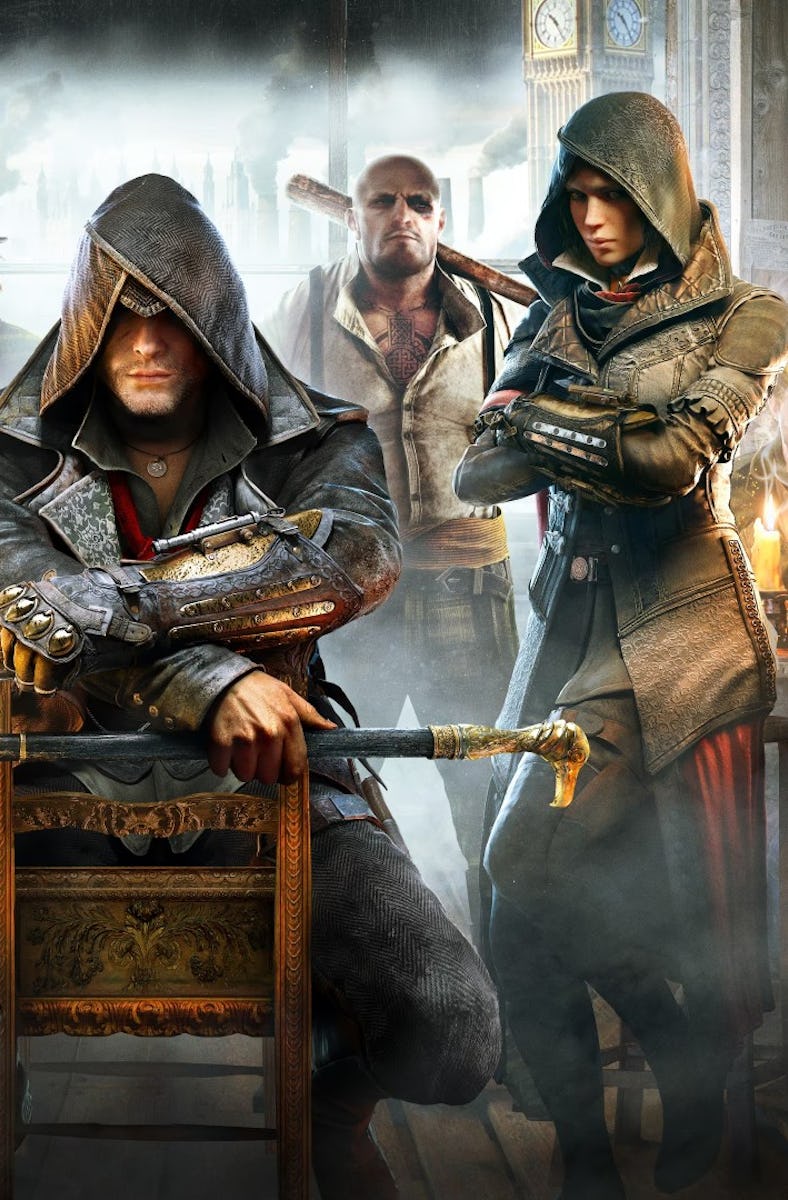The Most Underrated Assassin's Creed Game Is Free on PC
Taking London back, street by street.

Assassin’s Creed has delved into a hodge-podge of different time periods, from the French Revolution to Ancient Egypt. To this day, though, the most imaginative game in the series is also its furthest in history, transporting players to the grimy streets of London, during the heat of the Industrial Revolution. Assassin’s Creed Syndicate was the last entry before the franchise transformed into open world RPGs, but it creates a compelling historical setting that doubles as a fun playground with some of the series’ best gameplay. It’s one of the most memorable Assassin’s Creed games vever, and you can currently get it completely for free on PC, with an account on the Ubisoft store.
Set in London, in the year 1868, Syndicate explores a city undergoing rapid industrial change and innovation. The Templar Order has nearly eradicated the Assassin’s Brotherhood from the city, creating a vice-grip on the metropolis, and more importantly, its factories and innovations. From there you play as Jacob and Evie Frye, two young assassins who have to create a grass-roots resistance and take back the city, piece by piece.
Syndicate has immediately set the stakes sky high, and simultaneously creates the game’s core loop of gang warfare. Casting you as the ultimate underdog really works in Syndicate’s favor, giving its story a scrappy tone and feeling, heightened by brutal melee combat.
Building up the Rook gang from scratch is immensely satisfying, especially when you see the fruits of your labor pay off in massive brawls.
Taking a bit of inspiration from British period crime drama Peaky Blinders, a core mechanic of Syndicate revolves around building up your street gang, the Rooks, and then engaging in massive gang fights to take back the boroughs of London. While exploring the city, you can find opportunities to increase your gang’s strength with new weapons, member archetypes, vehicles, and more.
While you improve your gang, you’ll also find a number of “economic opportunities” that often tie into the main story. These run the gamut from freeing child laborers to kidnapping high-profile Templars, or attacking strongholds. By completing these opportunities, you loosen the Templar’s grip on that borough, and once you’ve done enough, you can launch a massive gang attack, which is essentially a knock-down drag-out brawl in the streets of London.
What’s really great about this whole gang system is how it unites progression with narrative. You aren’t just seeing the story of the Frye twins liberating London, but actually seeing its tangible effects as the look and feel of the boroughs change, and they yield more direct rewards like extra income and items. It’s a fantastic system that thematically fits the time period, but also feels mechanically satisfying.
Coupled with this is how Syndicate evocatively uses the city and its people. Assassin’s Creed has always looped historical figures into its story, but Syndicate does a fantastic job of integrating individuals like Charles Dickens, Charles Darwin, and Arthur Conan Doyle. Oftentimes, the side quests delve into these characters, and how they influence this Assassin’s Creed version of London. For example, one series of side quests has you solving a series of grisly murders based on the early stories of Sherlock Holmes, while others see you helping Karl Marx to stop an anarchist plot to attack Parliament. Yeah, that’s right, even Marx makes an appearance. Even past that, a fascinating set of missions transports you to 1910s-era London, giving a quick glimpse at how your actions have changed things.
Syndicate does a phenomenal job of tying its side content and main narrative together, uniting everything with its historical setting and themes.
More than any other game in the series, Syndicate does a masterful job of weaving all of its content together into one cohesive package. Assassin’s Creed typically does a good job of leaning into different time periods, but Syndicate, even eight years later, feels like the best the series has ever been. Every element of the game, from brutal combat options to themes of revolution, supports that Industrial Revolution setting.
In the years since it feels like Assassin’s Creed lost its way, with bloated open world experiences that are overloaded with systems, and a lackluster return to roots in Mirage. As the series moves forward, it should look back on experiences like Syndicate, and once again endeavor to unite all of its elements into one cohesive whole.
Assassin’s Creed Syndicate is available on PC, Xbox One, and PS4.
This article was originally published on